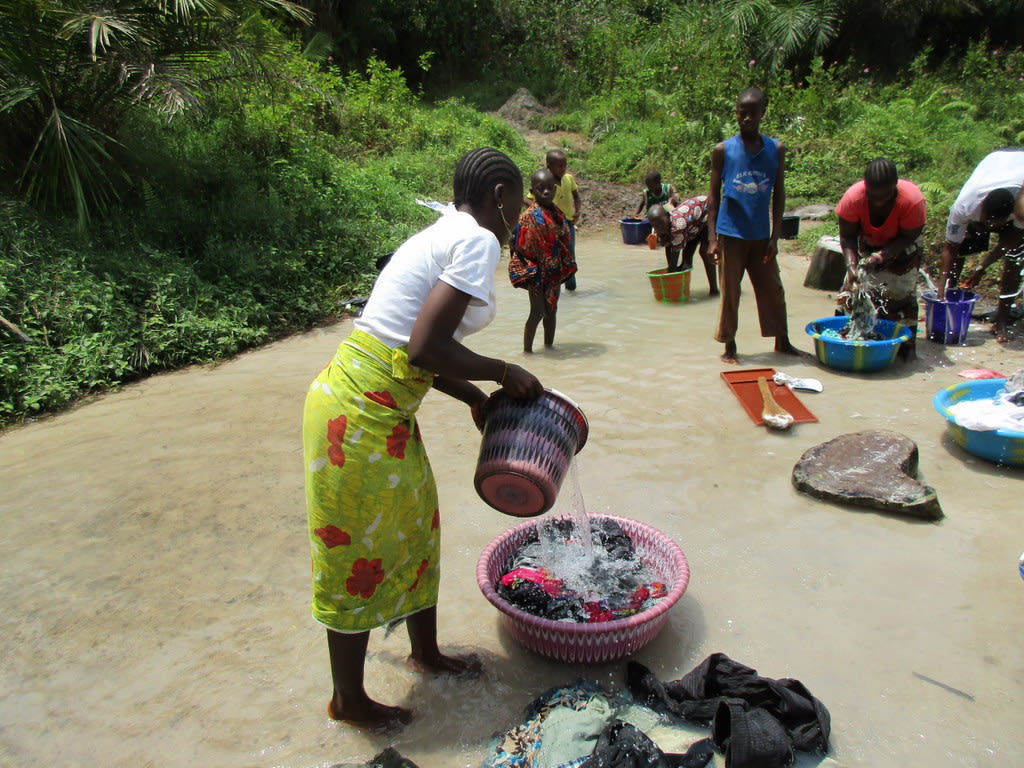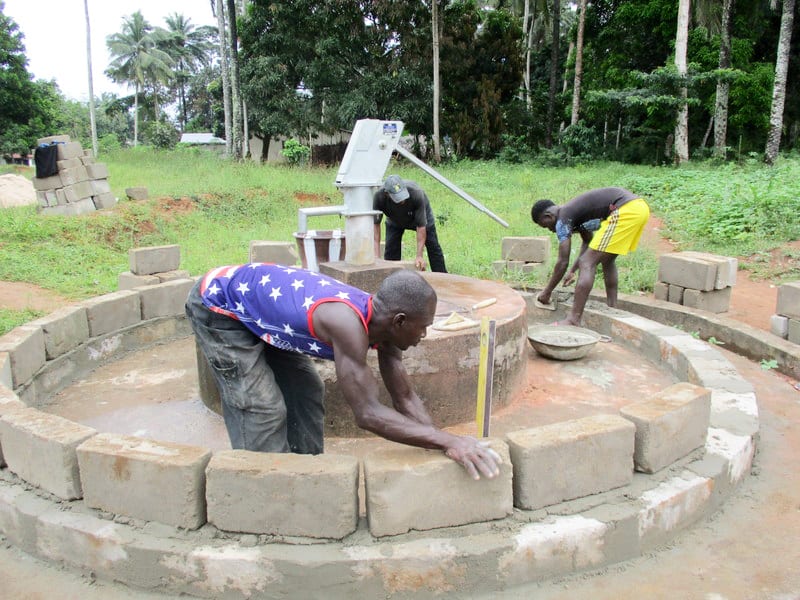The majority of people in Komrabai Community wake up early each morning for prayers. Then, the children are sent off to the swamp to collect water for their families.
This community has three protected wells that have obviously been well taken care of by the community. Their environments are spotless. However, there was no one returning for routine maintenance or the more pressing repairs. Now, only one of these three wells is partially functioning because of low water levels.
In addition to this well, we are rehabilitating the other two non-functioning wells to ensure everyone in Kombrabai has access to safe drinking water. See the projects here and here.
That means that this community’s only reliable water source is the swamp, which is located more than a mile away from some homes. Aside from the distance, the road is in poor condition and steep. It discourages people from using the source.

The community people use this source for more than one purpose. They will use it to bathe, farm, launder and some of them, particularly the kids, will even defecate close to the source.
The swamp water is open and not controlled, so it is prone to various contaminants. Because they share this unprotected source with other wild animals they are open to the diseases of those animals.
In the morning, school children will be the first to visit this source. The community people would have to wait until the kids are done, by which time the whole source would be dirty. During weekends the kids will flock to this water point for their weekly laundry and this will limit the chances of other groups of people in the community accessing water.
The community members must wait for the water to settle before collecting it. We learned that some people in this village do filter their water before consuming it. But Most will let the water stand in containers and wait for it to settle before draining it into their drinking buckets.
There is the risk of diseases in this community due to people risking to drink water from unprotected sources. When people get sick they are not productive and will not be earning as much money to care for their families. People die needlessly from these waterborne illnesses like cholera, dysentery, diarrhea, and malaria.
This is a very rural and peaceful community. People with a basic education have chosen to be traders, traveling to one-day markets called Lumas, buying agricultural produce wholesale and retailing it at other nearby villages. Others with no academic background have chosen to farm.
Most community members have latrines and nearly half of all households have handwashing stations. The latrines are mostly cement floor with very clean surroundings. Some homes don’t ensure that they have their latrine holes covered while others do. So there is room for improvement in the area of maintaining sanitized latrines.
"I am a little satisfied with our hygiene and sanitation. Most homes in this community have a latrine at least. And our latrine surroundings are clean and even the inside will be clean," Mr. Abduraman Mansaray said. That's a great start, but there's so much more to do to ensure that the people in Kombrabai are living the healthiest lives possible.
What we can do:
Training
There will be hygiene and sanitation training sessions offered for three days in a row.
The hygiene and sanitation trainer decided it would be best to teach community members about the importance of handwashing, building and using dish racks, and other sanitation facilities. Pictures will be used to teach the community how to discern between healthy and unhealthy hygiene and sanitation practices. They will applaud the community for full latrine coverage but will also teach them how to improve by keeping flies out of the pits.
These trainings will also result in a water user committee that manages and maintains the new well. They will enforce proper behavior and report to us whenever they need our help solving a serious problem, like a pump breakdown.
Well Rehabilitation
We want to work on the well located in the community. Our team has decided to do the hard work of drilling a borehole by hand in the bottom of this well, which will not only increase the water quantity but will ensure its quality, too. A new well pad will keep contaminants out, and a new India MkII stainless steel pump will provide easy and safe access to the clean water inside.
This community has been drinking dirty swamp water and suffering the consequences. With our rehabilitating this open well, the community will be provided with plenty of safe, clean drinking water.

 Protected Dug Well
Protected Dug Well

































